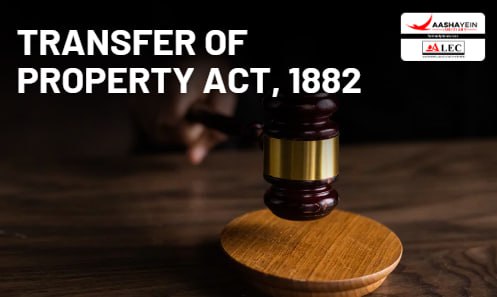Introduction
The concept of notice is essential in property law, as it determines whether a person is legally aware of certain facts related to a transaction. Under the Transfer of Property Act, 1882, the term notice is defined under Section 3, which explains when a person is considered to have knowledge of a fact. The importance of notice lies in the fact that once a person is deemed to have notice of a fact, they cannot later deny its existence. This doctrine helps in ensuring fairness and transparency in property transactions.
Legal Provision Under Section 3 of the Transfer of Property Act
According to Section 3, a person is considered to have notice of a fact in the following cases:
- Actual Knowledge – When the person is directly aware of the fact.
- Wilful Abstention or Gross Negligence – When a person, by deliberately avoiding inquiry or due to serious negligence, fails to acquire knowledge of the fact.
Additionally, three explanations are provided under Section 3 regarding notice:
- Explanation I: The registration of a document is considered notice of all facts mentioned in that document.
- Explanation II: A person who acquires immovable property is deemed to have notice of the rights of the actual possessor.
- Explanation III: If an agent has notice of a fact, it is considered that the principal also has notice (known as imputed notice or constructive notice).
Interpretation of Notice
In simple terms, notice means having knowledge or awareness of a fact. If a person has notice of a certain fact, they cannot claim ignorance to escape legal consequences. Notice can be classified into two types:
- Actual Notice – Direct or express knowledge of a fact.
- Constructive Notice – Indirect knowledge, where a person is assumed to have notice due to circumstances.
Actual Notice
Actual notice refers to a situation where a person has explicit knowledge of a fact. It is a matter of evidence and can be proved based on surrounding circumstances. To constitute actual notice, the following conditions must be satisfied:
Definite Knowledge – The person must have clear and direct information about the fact. Hearsay or rumors do not amount to actual notice.
Relevant Parties – Only the parties involved in the transaction can have actual notice. The knowledge of a third party (who is unrelated to the transaction) is not considered actual notice.
Related to the Transaction – The knowledge must be about the specific transaction in question. General awareness of unrelated facts does not constitute actual notice.
You can also read the latest judgment by visiting [Latest Judgment]
For more information, visit [Aashayein Enquiry Section]
Constructive Notice
The doctrine of constructive notice is a fundamental principle in equity that presumes a person to have knowledge of a fact even if they do not have actual knowledge of it. This legal concept applies in situations where the Court determines that, under the given circumstances, a person ought to have been aware of a particular fact. Constructive notice is based on legal presumptions and cannot be rebutted or denied. It is imposed by law in specific cases to prevent individuals from avoiding liability due to ignorance.
When Does Constructive Notice Apply?
A person is deemed to have constructive notice in the following circumstances:
- Wilful Abstention from Inquiry or Search – If a person deliberately avoids making inquiries that a reasonable person would have conducted, they are presumed to have constructive notice.
- Gross Negligence – If a person acts with extreme carelessness or fails to take necessary precautions, the Court may infer constructive notice.
- Registration of Documents – Under the Registration Act, the registration of documents that require mandatory registration is generally considered constructive notice to all concerned parties.
- Immovable Property Transactions – When a person acquires immovable property, they are presumed to have constructive notice of the rights and title of the actual possessor of that property.
- Notice to an Agent – If an agent receives notice of a fact while acting within the scope of their authority, their principal is deemed to have constructive notice of the same. However, if the agent fraudulently conceals the notice, the principal may not be bound by it.
- Partnerships – Partners in a firm act as agents of one another. Therefore, if one partner has knowledge of a fact relating to the business of the firm, it is considered notice to the entire firm.
Exceptions to the Doctrine of Constructive Notice
In Punjab, where the Transfer of Property Act is not enforced, mere registration of a document does not always operate as constructive notice. Whether registration serves as constructive notice depends on the facts of each case.
Tilak Dhari vs. Khedan Lal (AIR 1921 PC)
In this case, the Privy Council held that whether the registration of a document amounts to constructive notice depends on the facts and circumstances of the case. The Court emphasized that registration is generally considered constructive notice but not in all cases.
The doctrine of notice plays a crucial role in property law by ensuring fairness and transparency in transactions. Under Section 3 of the Transfer of Property Act, 1882, notice can be actual or constructive, with each type having specific legal implications. Actual notice requires direct knowledge of a fact, whereas constructive notice imposes a legal presumption of knowledge based on circumstances such as willful ignorance or negligence. Courts have consistently upheld the importance of constructive notice to prevent parties from evading liability by claiming ignorance.

